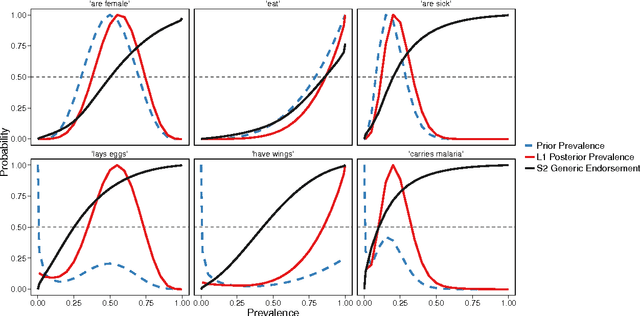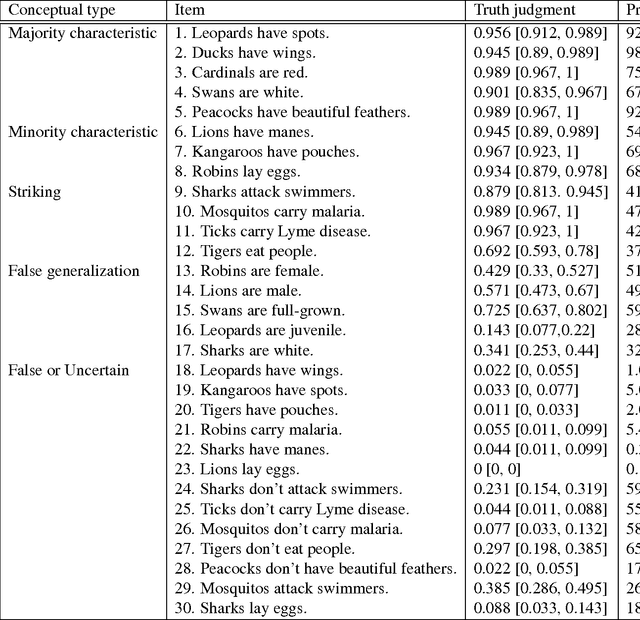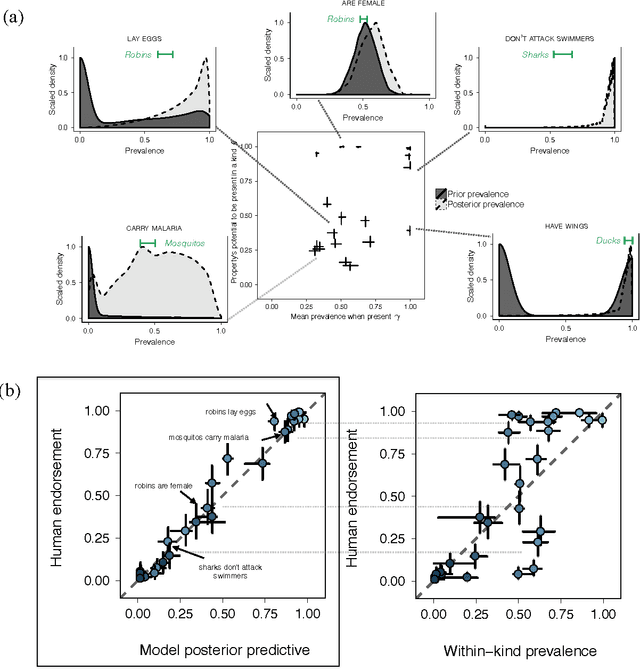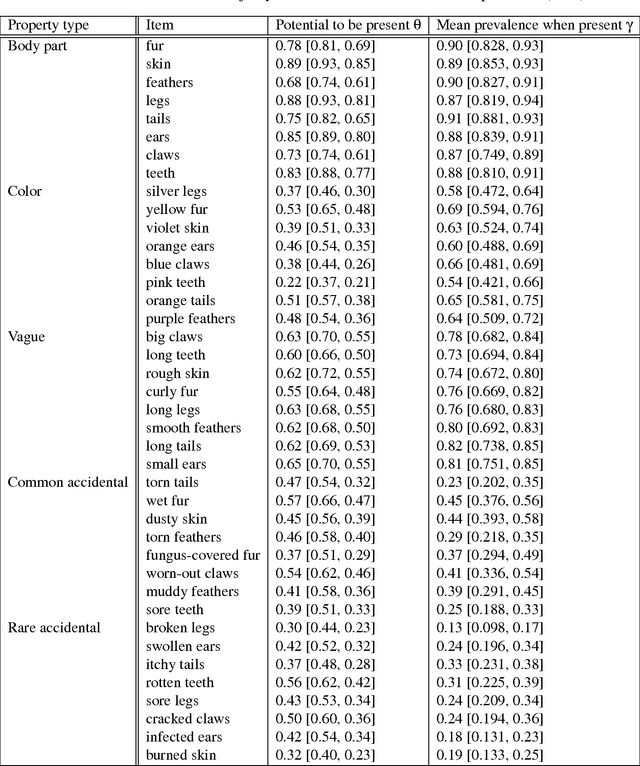The Language of Generalization
Paper and Code
Jun 08, 2018



Language provides simple ways of communicating generalizable knowledge to each other (e.g., "Birds fly", "John hikes", "Fire makes smoke"). Though found in every language and emerging early in development, the language of generalization is philosphically puzzling and has resisted precise formalization. Here, we propose the first formal account of the language of generalization that makes quantitative predictions about human understanding. We test our model in three diverse domains: generalizations about categories (generic language), events (habitual language), and causes (causal language). The model explains the gradience in human endorsement through the interplay between a simple truth-conditional semantic theory and diverse beliefs about properties. This work opens the door to understanding precisely how abstract knowledge is learned from language.
 Add to Chrome
Add to Chrome Add to Firefox
Add to Firefox Add to Edge
Add to Edge